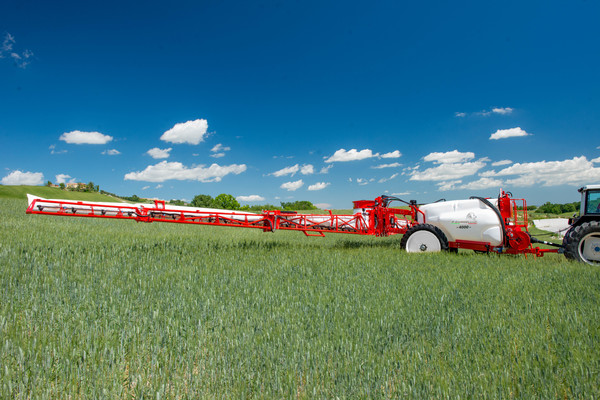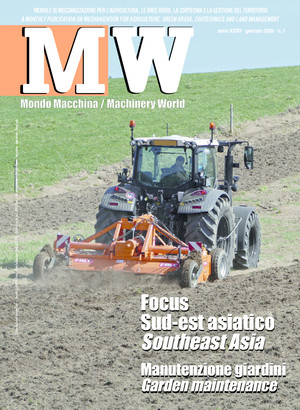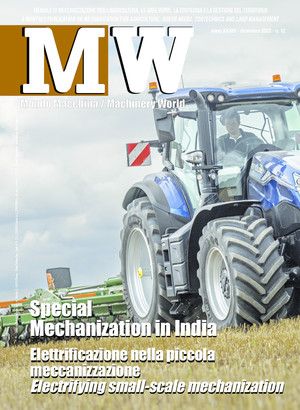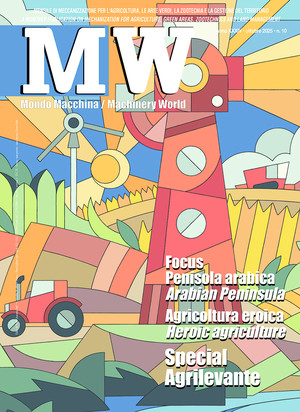
Conflict in Ukraine: the new order of agriculture
A debate on the effects that the military crisis is having on the geography of agricultural production and the machinery market was held in Bologna as part of the FederUnacoma Annual General Meeting. With a message from the Minister of Agriculture Stefano Patuanelli, a debate was opened with the participation of Carlo Cottarelli, Dario Fabbri, Paolo De Castro and the president of the agricultural machinery manufacturers Alessandro Malavolti
The economic crisis brought about by the war in Ukraine is also threatening the agricultural machinery sector and risks holding back an expanding market. Worldwide tractor sales reached a total of 2 million 485 thousand units in 2021, up 13.2% compared to the previous year and with particularly positive indexes for markets such as India (+28% with over one million units registered), the United States (+10.5% with 317 thousand units) and the European Community (+16% with 215 thousand units). Driven by good potential demand, world trade in agricultural machinery was expected to grow by 7.1% (in value) in the four years from 2022 to 2025.
The war in Ukraine has drastically changed the scenario, bringing about changes in the agricultural economy, in the geography of production, and in the supply chain for industry starting with energy. The new arrangements were discussed in Bologna, during the FederUnacoma General Assembly June 28th, in a debate that included as speakers economist Carlo Cottarelli, geopolitical analyst Dario Fabbri, former Minister of Agriculture Paolo De Castro and FederUnacoma President Alessandro Malavolti.
The FAO data released on June indicate a drop in agricultural production at a global level for the current year, determined precisely by the reduction of commodities from Ukraine and Russia, countries that alone account for about 30% of world exports of both wheat and barley. The reduction of commodities from these countries - Malavolti noted, opening the debate - will lead to a new geography of grain and oilseed production, probably assigning a greater role to countries such as Brazil, Australia and India, and this means new trade routes and new logistics in the global landscape.
Russia's expansion in Ukraine - Dario Fabbri explained - represents an element of pressure and possibly a threat for the entire European system, also because the situation has become radicalised and it is difficult to return to pre-conflict conditions. Moreover - added the geopolitical analyst - the territories currently occupied by Russia are of strategic importance from an economic point of view, since they generate a substantial share of Ukraine's GDP. According to Dario Fabbri, therefore, the consequences of the conflict in Ukraine will be long-term and it is likely that they will determine a new geography of agriculture, which, in turn, will lead Italian agro-mechanical companies to seek new destination markets for their production.
For the Italian economy - said economist Carlo Cottarelli - there is not yet a concrete risk of recession, but there is a condition of uncertainty linked to the tightening of economic sanctions against Russia, the rising cost of energy commodities, and therefore a further increase in prices. Inflation - Cottarelli noted - started in the US in spring 2021 and was triggered by the expansionary policies fuelled by the US government. This was triggered by the shock of the war, which caused inflationary pressures to intensify. Compared to the US central bank, however, the ECB has less freedom to intervene in interest rates, since, added Cottarelli, an overly restrictive policy could trigger anti-European political sentiments. At the current juncture, problems relating to agricultural production, and in particular rising costs, are added to those relating to the energy crisis and the supply of raw materials, which weigh on industry.
Never before have far-sighted policies been so necessary as in this phase, which can lead the economy towards a new stabilisation, and in this the European Union can play a very important role. Paolo De Castro, Member of the European Parliament and former Minister of Agriculture, noted from Brussels that agri-food exports from Russia and Ukraine to Europe do not account for a percentage of the sector’s volume for the European Union, which remains the world's leading exporter of agri-food products. The ongoing conflict between Russia and Ukraine worries everyone and we hope it will soon be over - De Castro added - but along with it the problem of drought and the issue of gas emissions into the atmosphere, which threatens increasingly serious effects for the Planet, are of great concern. Faced with the challenges represented by productivity and environmental sustainability - De Castro concluded - we need new agro-mechanical technologies, systems that are in many cases highly innovative and already tried and tested, which must be standardised quickly and which also require support at an economic level.
The agricultural machinery industry is therefore facing a difficult phase, being exposed to both agricultural and industrial variables, but it plays a central role as it is necessary to improve productivity and at the same time use natural resources in a sustainable manner. The events of the war are bringing agriculture back to the forefront as a basic element of every economic system - said Agriculture Minister Patuanelli in his video message - but agriculture today means high technology and hence agricultural mechanisation. Italian industry is a world leader in this sector, and the support action that the government has taken to incentivise the purchase of new generation equipment is very important. Rural Development Plans, NRRP, ISI Tender and Sabatini Law are all effective tools - Patuanelli concluded - and the 4.0 tax credit is particularly important in pushing agriculture towards a full digital transition.
The new FederUnacoma officers
Voting carried out at the annual meeting resulted in the election of the 24 members of the FederUnacoma General Council, representing the associations that historically comprise it (ASSOMAO, ASSOMASE, ASSOTRATTORI, COMACOMP and COMAGARDEN), plus the additional 7 so-called “cross-sectional” councillors, i.e. representatives who directly join the General Council.
This round only provided for the election of councillors and not association presidents, who were already elected in June last year and who remain in office until June 2023.
On the other hand, 'ex novo' elections were held for the two new association bodies that have been set up and become part of the Federation: these are ASSOIDROTECH (representing industries that manufacture irrigation and water management systems) and AGRIDIGITAL (representing industries that manufacture information technology and digital systems for agriculture).
Councillors as well as presidents and vice presidents were elected for the two new associations.








